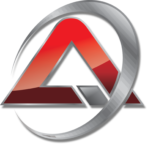NEC’s color-critical displays bring needed accuracy to nonprofit digital arts lab in Chicago
- Facility: Latitude
- Vertical: Photography
- Location: Chicago
- Challenges: Replace aging color-accurate equipment for print matching
- Solution: NEC MultiSync PA271W 27" desktop displays with SpectraViewII color calibration
- Result: Serving the arts and photography community with a high-end production space
- Date: February 2014
When the '90s-era monitors at a digital arts lab in Chicago began to fail, the staff knew they had to find a replacement that met standards for color correction and soft proofing while also being affordable for the nonprofit facility.
Latitude is a volunteer-run, 501(c)3 organization located in Chicago’s West Town neighborhood and supported by a number of arts grants and public support. Its mission is to provide access to high-end digital media equipment, a professional production space, and a curriculum dedicated to real-world workflows and contemporary art theory.
To meet Latitude’s goals, its small staff runs an artist-in-residence program and organizes ongoing arts programming for the community. Serving as an educational and arts production facility for hundreds of artists each year, its digital lab houses high-end scanning and printing equipment, and is open to the public for both DIY and full-service production. The digital lab space includes a print production room, a scanning room and a viewing area that allows both daylight and gallery lighting conditions.
For several years, Latitude depended on decades-old CRT monitors to soft proof and color correct digital images for printing output.
"The CRTs were great at the beginning, but eventually they logged enough hours that they were beyond even the help of our X-Rite calibrator," said Executive Director, James Pepper Kelly. "Our old monitors were failing, and we really needed new ones to maintain our commitment to high-quality editing."
Latitude required displays that covered as much of the Adobe RGB color gamut as possible but were also reasonably priced for this small, donation-dependent lab.
Staff and users print very large files, so large, ultra-high resolution monitors that were also very accurate were a must to ensure digital images accurately translated into printed proofs, saving time, money and paper on corrections.
In addition, displays needed to be capable of reaching a 250:1 contrast ratio while maintaining 90 cd/m2, allowing true hardware calibration to achieve the best possible color and contrast accuracy.
"The tech specs and the affordability were the most important factors," said Kelly. "This was a big deal for us. It was the first time we had purchased completely new equipment."
The Latitude staff began to research options, compare specs and talk to colleagues in the field, and received positive feedback about NEC Display Solutions. When Kelly learned about NEC PA271W monitors, it seemed the lab had found a fit.
The 27-inch, 2560-by-1440-pixel monitors can display 1.07 billion colors out of a palette of 4.3 trillion when using the 10-bit DisplayPort input, and cover more than 97 percent of Adobe RGB. The PA271W has a a 1000:1 contrast ratio and up to 360 cd/m2 of brightness – more than meeting Latitude’s minimum requirements. Latitude also chose the NEC SpectraViewII color calibration software to ensure that their calibrations were accurate, and it also worked well with their existing X-Rite color sensor
"The ability to have the profiles embedded into the display was great for our older systems, which didn’t allow SpectraViewII to be used," said Lab Coordinator, Xander Fischer. "We really need to make sure that our delta E, black level and white level are all in place when we run calibrations and SpectraViewII software works much better and gives more detailed readouts than [another profiler]."
Kelly discussed his find with Latitude’s then lab coordinator, Tom Dryjanski, and Latitude founder Walker Blackwell. Everyone was in agreement, so the team moved forward with an order.
A 27-inch PA271W NEC display was installed at all four work stations in the lab. The NEC displays joined digital lab equipment that included flatbed, Imacon and classic drum scanners; printers ranging from 17 to 60 inches in width; a specialty black and white Piezography printer; and several large-scale print trimmers.
The NEC displays have integrated well with the rest of the equipment and a fifth monitor, a newer NECPA272W display was added in February 2016, bringing the digital lab to five work stations and allowing it to continue to meet its goal of serving the arts and photography community with a high-end production space.
"It was like Christmas [when they were installed]," said Fischer. "[The NEC monitors] are the best tools for helping our users accurately match what’s on the screen to what comes out of the printer."
To learn more about Latitude Chicago visit: www.latitudechicago.org




